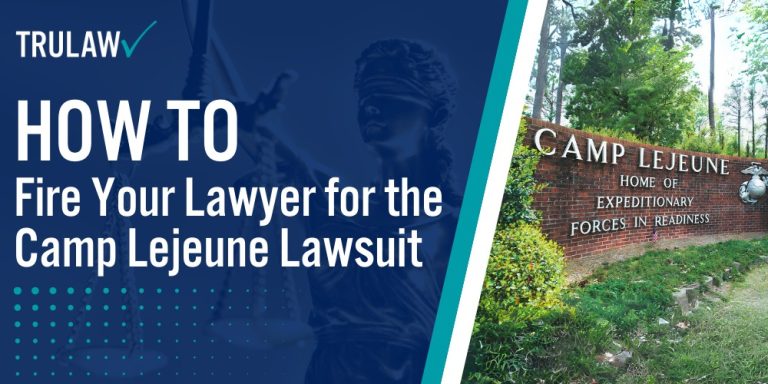In personal injury cases, it is better for all parties if you first provide a notice to terminate representation to your current lawyer.
Give notice of your intent to terminate representation (see below) to the law firm you are dissatisfied with before hiring a new lawyer.
Providing Notice of Termination
While there is no restriction against seeking a second opinion, lawyers walk a tightrope between giving advice to someone who has an attorney and conflict of interest.
Most ethical personal injury law firms will avoid all appearance of impropriety and they will refuse to talk to you until you terminate your current lawyer.
An Outline of a Notice of Termination
We recommend you protect yourself by sending both an email with a “read receipt” and a certified letter that clearly states the following information:
1. Date of the letter
It’s important that you include a clear date on the letter you send the lawyer / law firm currently representing you.
2. Address the Letter to ALL Attorneys Named in your Fee Agreement.
Address this letter to ALL of the attorneys that are named in your fee agreement (if more than one (1) attorney).
If you don’t have a copy of the fee agreement you signed previously:
- Find an email from the law firm / marketing firm and ask them to send you a copy.
- After you receive this data, ask the marketing firm / law firm to remove you from their email/text/call list.
3. State your intention to terminate the representation clearly.
It’s important that you CLEARLY state your intention to terminate their representation for your Camp Lejeune Lawsuit claim.
For example:
- “I am writing to notify you that I am terminating your legal service effective immediately”.
4. Consider adding the reason why you are terminating legal services.
This is not required, but it’s helpful to the firm to understand how they did not meet your expectations.
5. Revoke Authorization, clearly.
It’s important that you CLEARLY revoke their authorization for your Camp Lejeune Lawsuit claim.
For example:
- “Effective immediately, you no longer have the authority to represent or act on my behalf in any matter related to (case/matter name).”
6. Request all information gathered by the law firm for your case
Request all information filed and/or obtained by the law firm on your behalf.
This information includes, but is not limited to:
- A copy of any / all administrative filings and/or complaints filed on your behalf; and
- Medical Records obtained on your behalf.
7. If Hiring A New Law Firm (Important)
If you are hiring a new law firm to take over your Camp Lejeune Lawsuit claim:
- Request an accounting of all the costs incurred by your old law firm on your behalf; and
- Inform the old law firm of the name of the new law firm taking over your claim.
8. Express Appreciation (Optional)
Despite the fact that this law firm did not meet your expectations, it is likely they did their best — it is a lot of work to prepare a case for litigation.
A note as simple as this can go a long way in showing your gratitude for the effort they did put in while working with you:
- “Thank you for your services up to this point.”
9. Provide This If Hiring a New Lawyer / Law Firm for Your Camp Lejeune Lawsuit Claim
If you are hiring another lawyer for your Camp Lejeune Lawsuit claim, provide them with:
- A copy of your termination letter; and
- Proof of delivery of that termination letter to that lawyer / law firm previously working on your claim.


